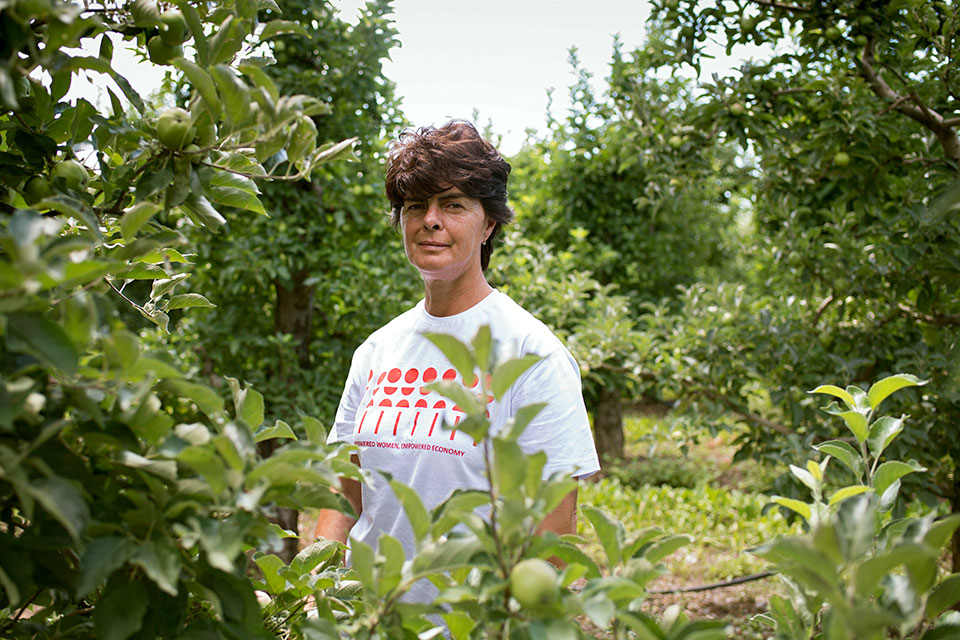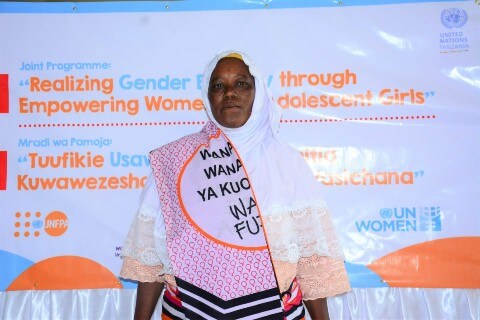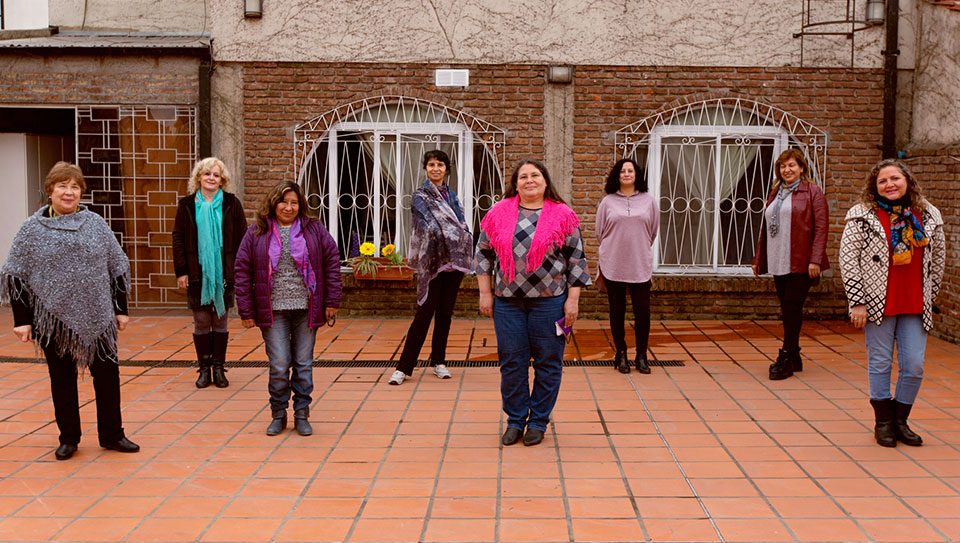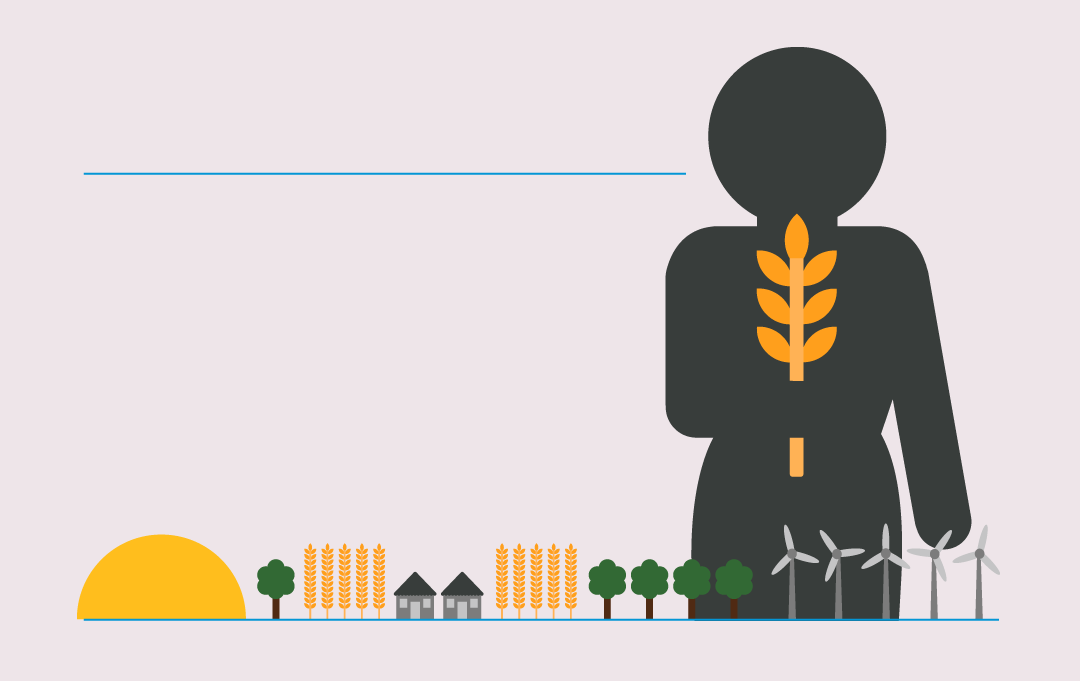In Focus: International Day of Rural Women
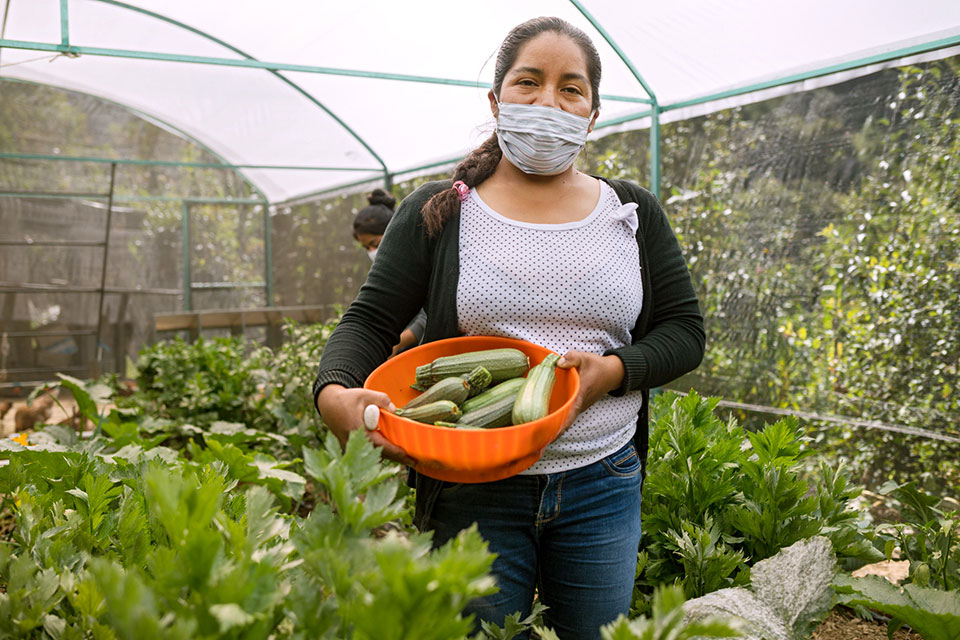
Top stories | Infographic |Videos |Social media
The theme for the International Day of Rural Women (15 October), “Rural Women Cultivating Good Food for All”, highlights the essential role that rural women and girls play in the food systems of the world.
From production of crops to processing, preparing and distributing foods, women’s labour – paid and unpaid – feeds their families, communities and the world. Yet, they do not wield equal power with men, and as a result, they earn less income and experience higher food insecurity.
Despite our planet’s capacity to provide sufficient and good food for all, hunger, malnourishment, and food insecurity are rising in many parts of the world. The COVID-19 pandemic, along with climate crises, have made matters worse: some 2.37 billion people did not have enough to eat in 2020 –that’s 20 per cent more than the year before.
UN Women’s latest report, Beyond COVID-19: A feminist plan for sustainability and social justice, calls for rebuilding the broken global food system from the bottom-up by supporting rural women’s livelihoods to produce and distribute diverse and healthy food crops. With less than 10 years to achieve the Sustainable Development Goals, including Zero Hunger (Goal 2) and Gender Equality (Goal 5), UN Women is working to support rural women and girls around the world, to build their resilience, skills and leadership.
UN Women statement on the International Day of Rural Women
This International Day of Rural Women offers us a renewed opportunity to commit to a different way of organizing our world, to build on the vision of the Feminist Plan and on the outcomes and multistakeholder commitments of the recent United Nations Food System Summit, so that rural women benefit equally from their productivity, with good food enjoyed by all. Learn more ►
Top stories
Zivka Gjurchinovska is a farmer and mother of three who has been working in agriculture for 20 years – producing corn, wheat, beans, potatoes and other vegetables. A few years back, at their children’s suggestion, Gjurchinovska and her husband decided to try growing hazelnuts. They now have 750 hazel trees on 8,000 m2 of leased land.
In Tanzania, women make up more than half of the workforce in the agriculture sector, but remain poor, says Mariamu Rasidi Tungu. Most of them work in family farms without any payment and lack access to land ownership.
Ramat Khan is a community educator with a UN Women programme in rural Rajasthan, India. Even during the COVID-19 pandemic, Khan taught lessons to the girls and women in her village, while taking precautions to stop the spread of the virus. Her message for every parent: educate your girls.
“Even though women work the land, they do not own it,” explains Irene Cari Lack of economic autonomy compounds the challenges that women face in abusive relationships. The EU-UN Spotlight Initiative supported organizations to help indigenous and rural women access information and services in their own languages, during the COVID-19 pandemic.
Learn the facts: Rural women and girls
Videos
Social media
- Use #ruralwomen on social media to show the world that you stand in solidarity with rural women and their organizations everywhere as they seek to influence the decisions that shape their lives.
- Spread the message with GIFs, infographics and other visuals that you can download from our social media package with images and messages in English, Spanish and French, available here: https://trello.com/b/KQKorIfN/un-women-social-media
Follow us:
@un_women, @onumujeres, @onufemmes on Twitter
UN Women, ONU Mujeres, ONU Femmes on Facebook
@unwomen on Instagram
@unwomen on TikTok
un-women on LinkedIn
un-women on Medium
See our coverage of International Day for Rural Women from previous years: 2019, 2018, 2017, 2016, 2015, 2014, 2013, 2012, 2011
